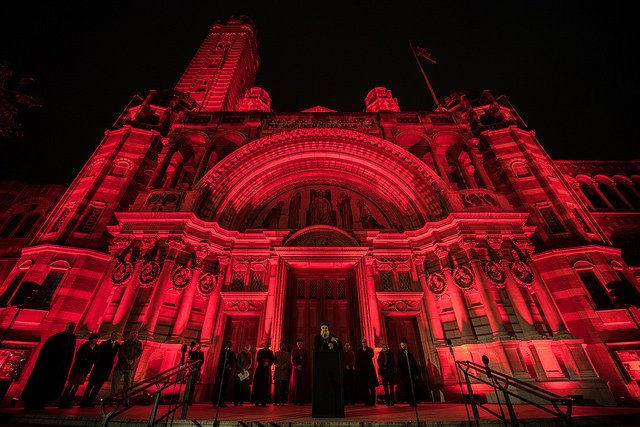
The British Foreign Secretary has written 40 letters to persecuted Christians, according to the religious freedom charity Open Doors.
One such letter was sent to a Nigerian woman who was abducted as a teenager by Boko Haram militants. Jeremy Hunt’s letter to her stated: “I cannot begin to imagine the horrors of what you have suffered. I stand in awe of the great faith that has given you the strength to rebuild your life and dignity.
“I want you to know that you are not alone that British diplomats continue to raise your situation that we continue to fight your corner and that we stand with those who are being denied the basic rights to practice their faiths.”
Erin James of Open Doors said she was “absolutely thrilled to see [Mr Hunt] engaging with Christians like this” and said the woman, Esther, reacted similarly when the charity delivered the letter to her.
“Esther was completely shocked when this letter came through,” she explained.
“She couldn’t believe that he even knew who she was. So it’s so wonderful to see that girl realise how supported she is, how loved she is by Christians in the UK and around the world.”

Mostly Muslim parents who had been demonstrating outside a primary school in Birmingham, UK, against the teaching of same-sex relationships have been banned from the area by court order.
Birmingham City Council was granted a temporary High Court injunction which says people, “shall not… organise, engage in, or encourage any other person to engage in any protest against the teaching of equalities at Anderton Park Primary School”. It also says that people breaking the injunction could be sent to prison.
Education Secretary Damien Hinds welcomed the injunction and said parents should share their views, and schools should listen, but added “However, what is taught and how is ultimately a decision for schools. Consultation does not mean parents have a veto on curriculum content.”
Parents protesting against same-sex relationships classes at the school have said they are being treated worse than fascists and the injunction was “disproportionate and unjust”.
The parents are calling for three things: For the current RSE programme and teaching around LGBTQ relationships at the school to be suspended; a proper consultation involving third parties where the parents, not the school, decide who represents the parents; and, for any future programmes to be both age-appropriate and religiously sensitive.
While the protests have been led by Muslim parents, they have been joined by Christians also.
Former Cabinet minister and Conservative party leadership candidate, Esther McVey, has backed the right of parents to withdraw their children from Relationships Education at primary school. Speaking to Sky News, she said that with young children, “parents need to have the final say”. Local Labour MP Jess Phillips, however, said the parents seem to want to “unravel equalities legislation in their image,” and “They have got to understand that equalities legislation protects them, and you can’t pick and choose.”

Most atheists and agnostics believe in the supernatural and the existence of forces of good and evil.
That’s the headline finding of a new study on unbelief from a research team in the UK.
Prof. Stephen Bullivant, Professor of Theology and the Sociology of Religion at St Mary’s University, Twickenham led the study that conducted interviews of unbelievers in six countries around the world: the U.K., the U.S., Japan, Brazil, Denmark, and China.
Most commonly accepted beliefs among atheists, and agnostics, the report states, are the sentiment that there are ‘underlying forces’ of good and evil; that ‘there exists a universal spirit or life force’; and ‘most significant life events are meant to be and happen for a reason.’
Unbelief in God, they write, doesn’t necessarily entail unbelief in other supernatural phenomena, and only minorities of atheists or agnostics in each of the countries appear to be thoroughgoing naturalists.
Another common supposition – that of the purposeless unbeliever, lacking anything to ascribe ultimate meaning to the universe – also does not stand up to scrutiny, they write. The idea that the universe is ‘ultimately meaningless’ remains a minority view among unbelievers in all six countries.
Moreover, they write, with only a few exceptions, atheists and agnostics endorse the realities of objective moral values, human dignity and attendant rights, and the ‘deep value’ of nature, at similar rates to the general populations in their countries.

Christian Solidarity Worldwide has condemned the continuing human rights abuses in China in a statement on the 30th anniversary of Tiananmen Square Massacre.
While vigils and events are being held in Hong Kong, London, Washington DC and other cities around the world to mark the violent suppression of peaceful protests in June 1989, CSW said they are dismayed by the current human rights situation.
“Under President Xi Jinping there has been a pattern of increasing human rights abuses: a stranglehold over civil society; a heightened sensitivity to perceived challenges to Party rule; and the introduction of legislation that curtails civil and political rights in the name of national security”. They added: “There has also been a rapid and alarming decrease in freedom of religion or belief, marked by the closure of thousands of temples, churches and mosques, the detention and disappearance of religious leaders, and the stripping away of religious symbols and signs. An attack, as one pastor put it, on the soul”.
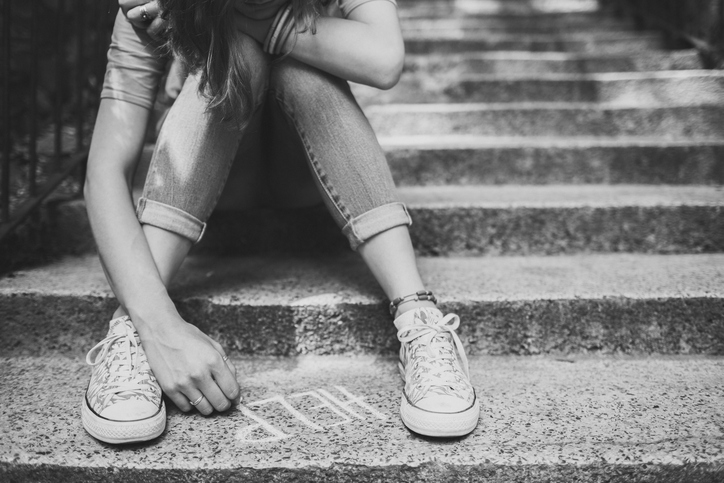
A 17-year-old girl who felt she could no longer go on living has been allowed to die at home with the help of an ‘end-of-life clinic’. She had been a victim of rape as a young girl.
Noa Pothoven died in a hospital bed in her living room after doctors allowed her to starve and dehydrate to death.
In Holland, children as young as 12 can be granted euthanasia if they desire, but only after a doctor concludes that the patient’s suffering is unbearable with no clear end in sight.
In a social media post one day before her death last Sunday, Noa made her decision public: ‘I will get straight to the point: within a maximum of 10 days I will die. After years of battling and fighting, I am drained. I have quit eating and drinking for a while now, and after many discussions and evaluations, it was decided to let me go because my suffering is unbearable.’
According to the Dutch newspaper De Gelderlander, Noa’s parents had no idea she was unwell until her mother discovered a plastic envelope in her room filled with farewell letters to her parents, friends and acquaintances.
‘I was in shock,’ Lisette told De Gelderlander. ‘We didn’t get it. Noa is sweet, beautiful, smart, social and always cheerful. How is it possible that she wants to die? We have never received a real answer. We just heard that her life was no longer meaningful.’
Lisette told De Gelderlander last year that Noa and was ‘at odds’ with her parents. ‘We, her parents, want her to choose the path of life. Noa really doesn’t want to die at all. She only longs for peace,’ Lisette said. But when she turned 17, Noa no longer needed her parents consent in order to apply for euthanasia.

Almost four in ten births (37.8 per cent) in 2018 were registered as outside of marriage, according to the latest official figures.
A yearly summary of births and deaths published by the Central Statistics Office (CSO) shows the rate is at its highest ever.
The figures also showed a significant ‘marriage gap’ depending on what part of the country a baby was born. Well over half (54.5 per cent) of all births in Limerick were to unmarried mothers, compared to less than a quarter (23.8 per cent) in the Dún Laoghaire-Rathdown area of south Dublin.
Overall, there was a declining birth rate. There were 61,016 births registered in 2018, a decrease of 1,037 on 2017. The 2018 total is 19.4% lower than in 2008 when 75,724 births were registered.
The total period fertility rate in 2018 was 1.8 which is below replacement level of 2.1.
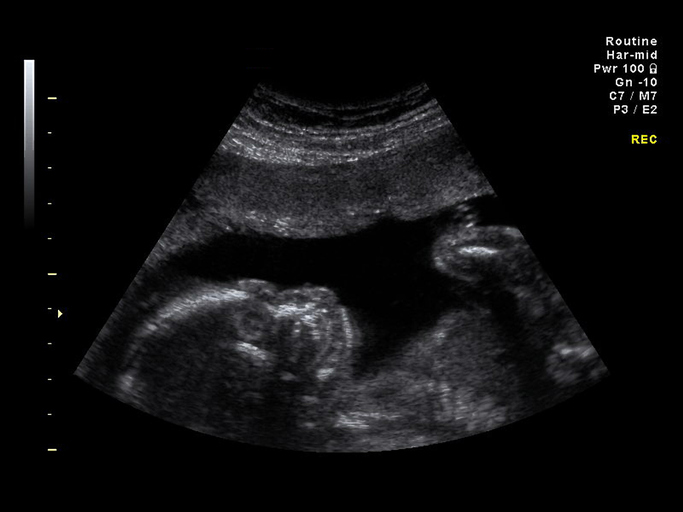
The London-based Royal College of Obstetricians and Gynaecologists (RCOG) has refused to conduct an inquiry into the case of a child aborted at the National Maternity Hospital (NMH) at Holles Street after a wrongful diagnosis of a serious foetal abnormality.
The Hospital had asked the Royal College to review the case, but in declining the invitation, it said it did not have the expertise needed. It also expressed doubt that it could complete the work as quickly as was required. It has suggested individual clinicians would be in a position to carry out a review more swiftly, and has offered to put the hospital in contact with them.
Caoimhe Haughey, the solicitor for the couple in the case, said RCOG’s decision meant promises of an independent review were now “in limbo” and it was unclear what would happen.
She has has written to Health Minister Simon Harris and Chief Medical Officer Dr Tony Holohan calling for a full statutory inquiry. In the letter, she indicates a proposed external review might not go far enough and the parents of the child believe a sworn Section 9 inquiry may be warranted “to eliminate risk”.
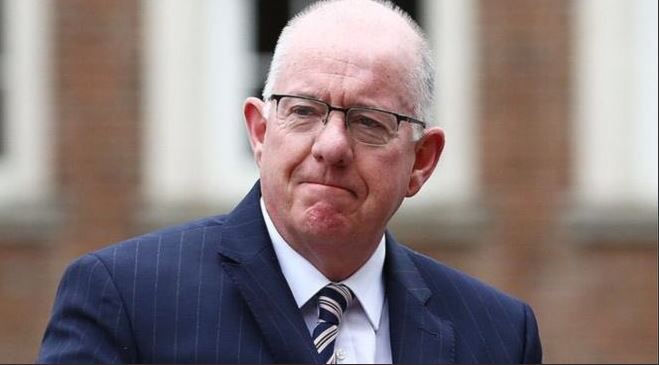
An American bishop has been attacked by three Irish Government ministers for tweeting that Catholics should not participate in gay pride celebrations.
Bishop Thomas Tobin of the diocese of Providence, Rhode Island, posted on Saturday: ‘A reminder that Catholics should not support or attend LGBTQ “Pride Month” events held in June. They promote a culture and encourage activities that are contrary to Catholic faith and morals. They are especially harmful for children.”
In response, Culture Minister Josepha Madigan tweeted: “Not the God I know. Disgraceful. !?”.
Social Protection Minister Regina Doherty called the Bishop’s comments ‘unchristian’, writing: “I think this is so so sad and probably THE most unchristian thing to do – to isolate and discriminate. NOT ON,” followed by an angry emoji.
Justice Minister Charlie Flanagan added his own condenations, writing: “So dispiriting but alas not surprising. Complete absence of tolerance, understanding & compassion. So sad & disappointing”.
Bishop Tobin followed up his earlier tweet with a statement expressing ‘regret’ that his comments turned out to be so ‘controversial’ in our community, and ‘offensive to some’. He added that, as a Catholic Bishop, however, his obligation before God is ‘to lead the faithful entrusted to my care and to teach the faith, clearly and compassionately, even on very difficult and sensitive issues’.

One candidate in the local elections made history this week by becoming Ireland’s first black female county councillor.
Nigerian-born, evangelical Christian, Yemi Adegua was elected to represent the Navan area of Meath county council.
Her success ruffled the feathers of some people though, not because of her ethnicity, but because she gave glory to God in a joyful social media post that garnered over 3600 ‘likes’.
One respondent offered his congratulations to her but added a plea ‘on behalf of the new Ireland’, that she ‘leave the religion out of it’. Another wrote, ‘Congrats but please leave the god stuff back in Nigeria’, and another: ‘First black person. Great stuff. The God stuff. Less great depending on how it affects your policies.’
A further tweet said ‘Congratulations. Really pleased to see the beginnings of diversity in our councils. But please: lay off the religious stuff we live in a republic and trying hard to separate church and state.’
And another said: ‘Extraordinary to see religion attempt to insinuate itself again into Irish politics. We spent long enough getting it out’
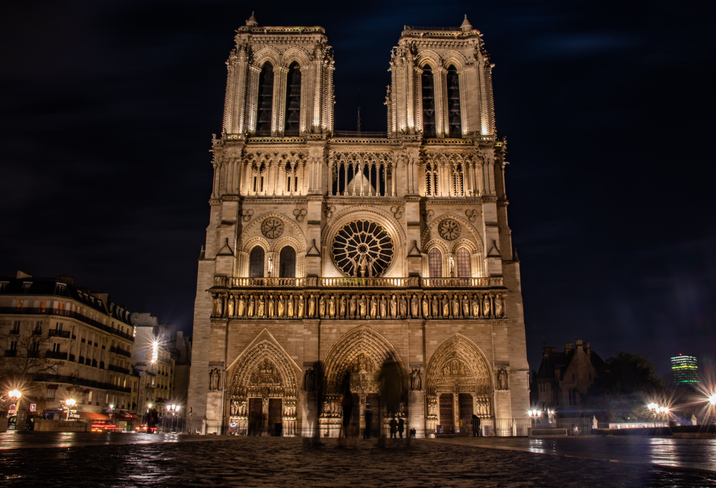
The French Senate passed a bill on Monday that Paris’s Notre Dame Cathedral must be rebuilt to its “last known visual state.”
This is in opposition to French president Emmanuel Macron’s call for “an inventive reconstruction” of the roof and spire which were destroyed in the fire that engulfed the building in April. It also goes counter to an international competition proposed by the French Government for a new design that would rebuild the spire ‘adapted to techniques and challenges of our times’.
The Cathedral is the property of the French state ever since it was seized in 1789 during the French Revolution, and although the Catholic Church now has exclusive use of the building, the Government is responsible for building maintenance and repairs.
According a poll conducted by YouGov from Le HuffPost and CNews, 54 percent of French adults want to restore the cathedral to its original form, with another 25 percent seeking a modern addition. 21 percent of respondents did not have an opinion on the matter.